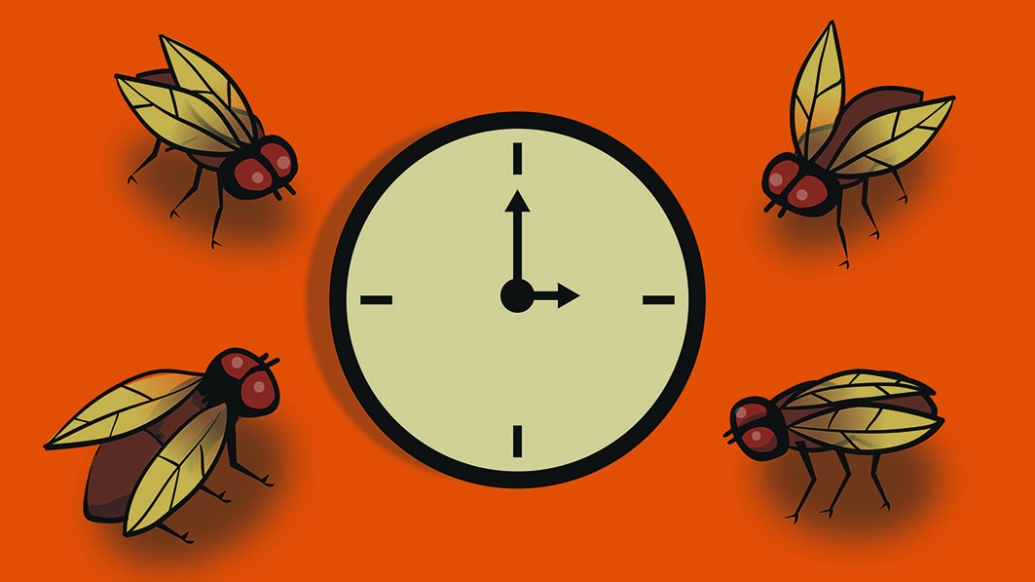Discovery Research updates

How Do Fruit Flies Tell Time?
Almost every living thing on Earth has a circadian rhythm, the biological clock that controls both physiology and behavior of organisms over a 24-hour period. But how do these clocks work within living cells?
Using the relatively simple clocks found in fruit flies (Drosophila melanogaster), researchers in the Department of Cell and Developmental Biology, including Yangbo Xiao, Ph.D., Ye Yuan, Ph.D., and Swathi Yadlapalli, Ph.D., revealed that the subcellular location of clock proteins and genes fluctuates with the daily passage of time, indicating that spatial information is translated into time-related signals. Their findings were recently published in Proceedings of the National Academy of Sciences.
"Your cells are making key clock proteins and once you have high enough levels, those proteins enter the nucleus and stop their own mRNA production," says Yadlapalli. "Genes are being moved to the edges of the nucleus within our cells then back again, essentially every 12 hours, every single day — throughout the life of the organism." This movement regulates the circadian rhythm.
—Kelly Malcom
Microscopic Imaging Without a Microscope?
Traditional imaging techniques only allow for the study of a handful of genes at a time, but a new technique, developed by Jun Hee Lee, Ph.D. and his team, uses high-throughput sequencing, instead of a microscope, to obtain ultra-high-resolution images of gene expression from a tissue slide. The technology, which they call Seq-Scope, enables a researcher to see every gene expressed at incredibly high resolution: 0.6 micrometers or 66 times smaller than a human hair — beating current methods by multiple orders of magnitude.
"We have made a microdevice that you can overlay with a tissue sample and sequence everything within it with a barcode," says Lee, associate professor of molecular and integrative physiology. The barcodes allow a computer to locate every gene within a tissue sample, creating a Google-like database. The work is described in an article published in Cell. Lee says the technology "could accelerate scientific discoveries and might lead to a new paradigm in molecular diagnosis." —KM
"Springing Forward" Affects Early Birds Less Than Night Owls
People whose genetic profile makes them more likely to be "early birds" can adjust to the switch to Daylight Saving Time (DST) in a few days, says a recent study published in Scientific Reports. But those who tend to be "night owls" could take more than a week to get back on track. Margit Burmeister, Ph.D., the paper's senior author, associate chair and professor in the Department of Computational Medicine and Bioinformatics, and professor of human genetics, says the study shows that "DST makes everything worse."
Previous studies of DST's negative effects on things like rates of heart attacks and car accidents "mostly comes from looking for associations in large data pools after the fact," she said. "These data from direct monitoring and genetic testing allow us to directly see the effect, and to see the differences between people with different circadian rhythm tendencies." —Kara Gavin





